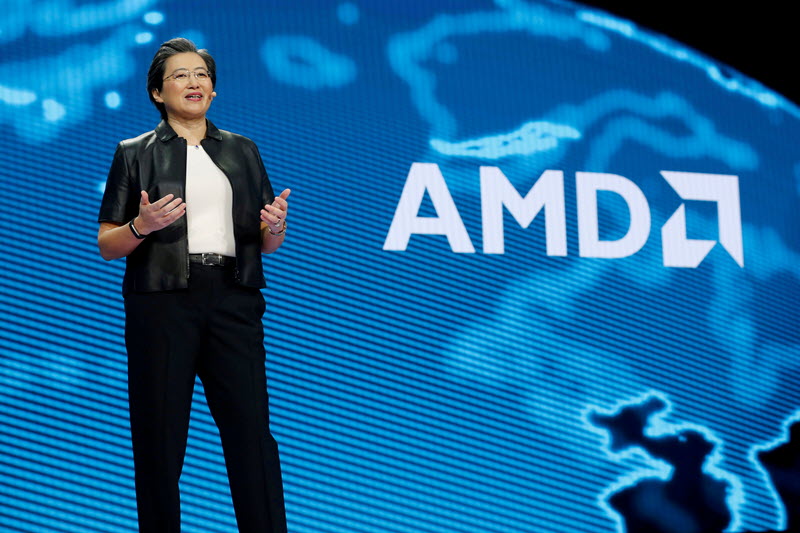Navitas stock soars as company advances 800V tech for NVIDIA AI platforms
On Tuesday, KeyBanc Capital Markets adjusted their position on AMD (NASDAQ:AMD), downgrading the semiconductor company's stock from Overweight to Sector Weight. The decision comes as AMD's stock has declined over 50% in the past year, with particularly sharp losses of nearly 19% in the past week alone. The decision was influenced by several factors, including concerns over the long-term viability of AMD's artificial intelligence (AI) business in China. KeyBanc analysts cited increasing competition from Intel (NASDAQ:INTC) and the potential for a price war as additional reasons for the downgrade. According to InvestingPro analysis, AMD currently shows signs of being oversold, with 18 additional key insights available to subscribers.
AMD faces heightened risks to its gross margins (GM) due to aggressive pricing strategies employed by Intel. The company currently maintains a healthy gross margin of 53%, while operating with minimal debt, as evidenced by a low debt-to-equity ratio of 0.04. Despite AMD's stock being relatively affordable, trading at approximately 13 times KeyBanc's estimated earnings per share (EPS) for 2026, the firm expresses caution. Historically, semiconductor stocks have shown a tendency to underperform when gross margins are under pressure.
While the downgrade reflects concerns over AMD's competitive position and margin risks, KeyBanc acknowledges some positive developments. The firm has increased its revenue and EPS projections for AMD based on stronger demand for the MI308 and personal computers, which have seen a surge in orders. This aligns with AMD's impressive revenue growth of nearly 14% and strong liquidity position, with a current ratio of 2.62. However, these upward revisions are coupled with a reduction in gross margin assumptions. InvestingPro subscribers can access detailed valuation metrics and comprehensive analysis in the Pro Research Report, helping investors make more informed decisions.
AMD's stock adjustment by KeyBanc comes at a time when the semiconductor industry is navigating through a complex landscape of supply chain challenges, competitive dynamics, and fluctuating demand patterns. The downgrade serves as a signal to investors about the potential headwinds AMD may face, particularly in its China AI segment and in the face of intensifying competition.
Investors and market watchers will be closely monitoring AMD's performance in the coming quarters, as the company strives to maintain its market share and navigate the competitive pressures outlined by KeyBanc's analysis.
In other recent news, Advanced Micro Devices (AMD) has completed its acquisition of ZT Systems for $4.9 billion, a strategic move aimed at enhancing its AI infrastructure capabilities. This acquisition is expected to bolster AMD's competitive position by integrating ZT Systems' engineering expertise, particularly in rack-scale systems, with AMD's existing technology portfolio. Stifel analysts have maintained their Buy rating for AMD, setting a price target of $162, and anticipate that the acquisition will be accretive by 2026.
Meanwhile, AMD's 5th Gen EPYC processors are now powering Oracle (NYSE:ORCL) Cloud Infrastructure's (OCI) new Compute E6 Standard shapes, offering significant performance improvements. OCI's adoption of these processors is part of a broader strategy to enhance compute-intensive workloads, reflecting AMD's influence in the cloud market. In related developments, Bernstein analysts have noted potential volatility in the U.S. semiconductor sector following new tariff plans announced by President Trump, although semiconductors have been temporarily spared from reciprocal tariffs.
The indirect impacts of these tariffs are expected to arise from supply chain disruptions and demand changes. Wolfe Research analysts have indicated that economic uncertainty may lead companies to adopt cautious forward guidance. Investors are now focusing on the upcoming earnings season and potential Federal Reserve actions to assess future market directions.
This article was generated with the support of AI and reviewed by an editor. For more information see our T&C.
